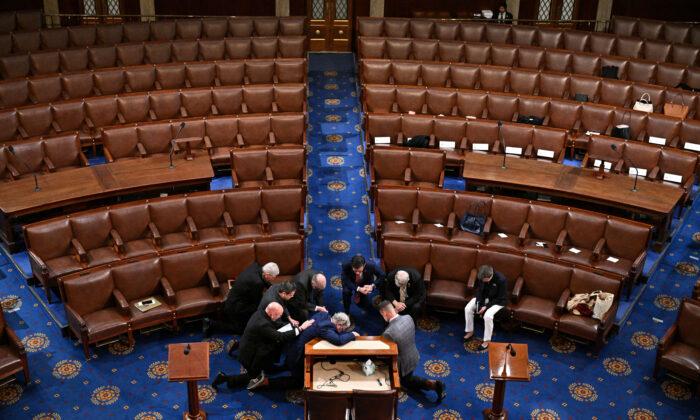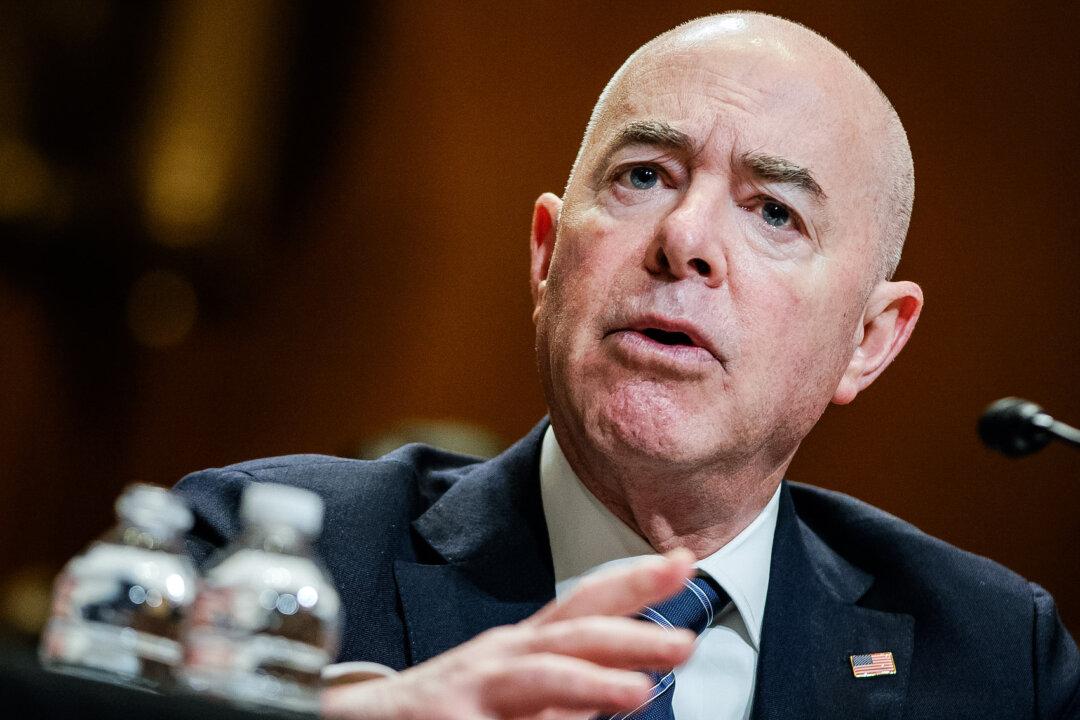Rep. Kevin McCarthy’s (R-Calif.) 15-ballot route to becoming speaker of the House of Representatives wasn’t the “chaos and confusion” that’s been claimed by Democrats and the mainstream media, but rather the deliberative debate intended by the authors of the Constitution, according to a wide spectrum of legislative experts.
“What we’re talking about is writing the fundamental rules governing the operation of the House of Representatives,” Heritage Foundation senior research fellow Robert Moffit told The Epoch Times. “What they have done so far that makes a great deal of sense is they have decided they are going to have an appropriations process, which will follow regular order.
“The consequence of that in terms of its stark contrast with what we have been used to will be dramatic, if they are actually able to carry it out. It will mean we will be spared the annual horror show of omnibus spending bills with many thousands of pages that Congress will be forced to vote on without even having the opportunity to read what it is they are voting on.
“That is totally incompatible with the constitutional system designed by James Madison and his colleagues, which saw the legislative process as one of rational deliberation by the elected representatives of the people. You cannot have rational deliberation under the previous regime.”
In addition to being a longtime fellow of conservative think tank The Heritage Foundation, Moffit, whose doctorate in political science was awarded by Arizona State University, is a congressional veteran and a former director of congressional relations for the Department of Health and Human Services.
While Schuman, a former Democratic congressional aide, writes from a liberal perspective, his legislative knowledge, grasp of historical trends, and analytical skills make him a widely respected congressional observer on both sides of the aisle.
Schuman pointed to the increasing centralization of power in the speaker and his or her staff and allies in recent years under Democrats and Republicans as the main spark behind the rebellion of a determined group of populist conservative dissidents led by Rep. Scott Perry (R-Pa.), the chairman of the House Freedom Caucus (HFC), Rep. Byron Donalds (R-Fla.), and Rep. Chip Roy (R-Texas).
“The language the chattering classes used to describe the series of Speaker votes revealed their flawed understanding of what was happening, and illustrated their expectations about how the House works,” Schuman said.
“The inconclusive Speaker-election votes were a sign of ‘dysfunction,’ ‘crisis,’ and ‘chaos,’ a ‘circus,’ a ’rebellion.' It was assumed that in the interest of party unity—or out of fear of punishment—Republican members would go along to get along and submit ultimately to the strong Speaker system that has defined the House for decades.”
Rather than chaos, what was happening, according to Schuman, was the legislative deliberation and debate that has typified Congress since its founding.
“McCarthy’s personal desperation and a lack of alternatives, along with Democrats turning the screws to keep his agony visible, heightened that leverage considerably.”
Similarly, Rep. Andy Barr (R-Ky.), one of McCarthy’s strongest allies in the speaker race, told ABC News on Jan. 8 that he understands “the American people’s frustration with the delay in electing a speaker.”
“Certainly, it’s going to be a challenge to have a conference full of independent thinkers with a thin majority,” he said.
“But, you know, not only did the framers of our Constitution expect us to debate the operations of the House and the House rules and how we’re going to function, that’s what a healthy democracy actually requires.”
The Kentucky Republican said that before dealing with legislative challenges, the new GOP majority had to first deal with former Speaker of the House Nancy Pelosi’s use of the COVID-19 pandemic to consolidate more power to herself and her friends in the then-Democrat majority.“If you want to understand what happened on the House floor last week, you have to understand why the American people fired Nancy Pelosi and the Democrats and elected a new Republican majority. It’s because ... Speaker Pelosi used the pandemic to lock down the House of Representatives, to use proxy voting and remote committee proceedings to consolidate power in herself and a few other leaders at the expense of rank-and-file members and the millions of Americans that they represented to eliminate transparency, to write thousand-page omnibus spending bills behind closed doors.”
“With more direct input into the workings of the House where they serve, elected legislators will be more accountable to the voters, and I am hopeful the House will function more effectively and as our constitutional framers intended,” he said.
The House reconvened on the evening of Jan. 9 and adopted the new rules for the 118th Congress, a package that included many of the concessions McCarthy made to the dissidents, as well as the first bill of the new assembly, which repealed the funding for 87,000 new IRS agents that was included in the $1.7 trillion omnibus spending package approved by the lame duck 117th Congress just before Christmas 2022.






Friends Read Free